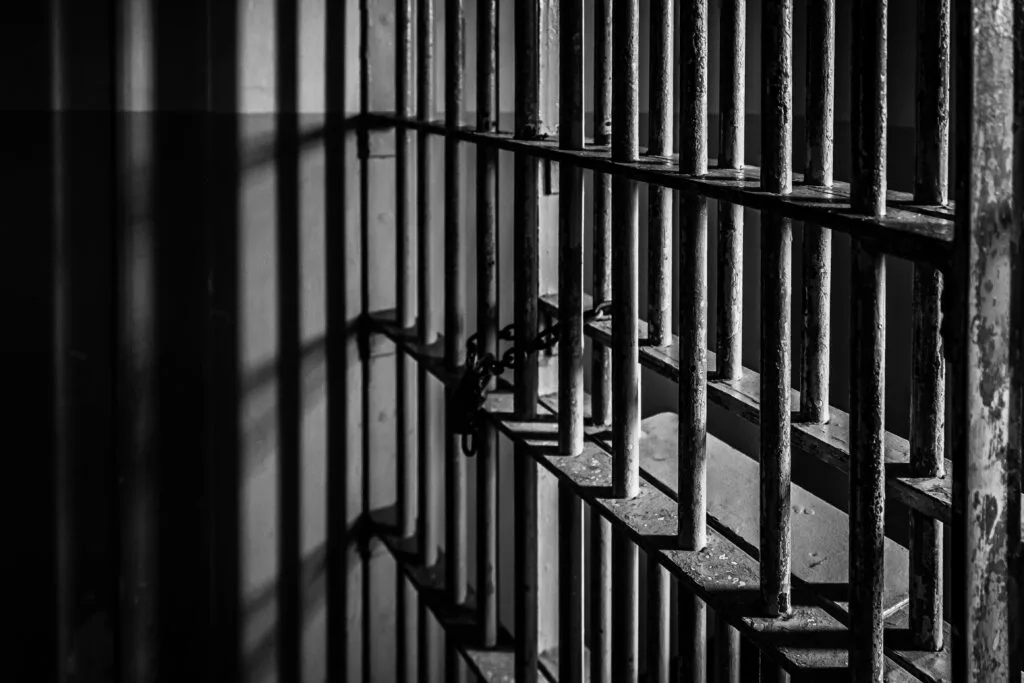As Federal Prison Reform Passes the House, 5 Docs to Watch

May 23, 2018
Share
With bipartisan support, the House of Representatives on May 22 passed the Trump-backed FIRST STEP Act — a federal prison reform bill introduced by both Republicans and Democrats that would implement measures aimed at reducing recidivism, prohibit the use of restraints on pregnant prisoners, provide opportunities for early release to home confinement or halfway houses for some offenders, and encourage evidence-based treatment programs for opioid and heroin addiction, among other initiatives.
It faces an uphill battle in the Senate, where Senate Judiciary Chairman Chuck Grassley (R-Iowa) and Senate Minority Whip Dick Durbin (D-Ill.) have vowed that efforts at criminal justice reform must include federal sentencing reform in addition to prison-focused initiatives like those in the current bill — a stance echoed by many civil rights organizations, including the ACLU and the NAACP Legal Defense and Educational Fund. However, the Equal Justice Initiative, a civil rights organization that works to combat mass incarceration and address racial disparities in the criminal justice system, expressed support for the bill, saying it would be “a great start” on prison reform.
This is at least the third time in recent years that Congress has introduced legislation to reform aspects of the criminal justice system. A bill backed by Grassley that includes sentencing reform was advanced by the Senate Judiciary Committee in February, but it has withered under opposition from Attorney General Jeff Sessions, who objects to any reforms that would reduce mandatory minimum sentences for certain nonviolent drug offenders.
If the Senate passes the less comprehensive FIRST STEP Act, however, President Trump has said he will sign it. In remarks at a White House prison reform summit on May 18, President Trump called prison reform an issue “that unites people from across the spectrum.” He added: “Our whole nation benefits if former inmates are able to reenter society as productive, law-abiding citizens.”
As Congress considers the next steps for the federal prison reform bill, here are five recent FRONTLINE documentaries to watch about life in state prison systems, which hold the majority of America’s inmates. The films offer a lens into the realities of incarceration in America and efforts by some states to reduce recidivism.
Life on Parole (2017)
Around half of all the inmates put on parole in the U.S. end up violating the terms of their release and are sent back to prison. But across the country, states are trying to change the way their parole systems work in an effort to lower recidivism rates and reduce prison populations. In Life on Parole, FRONTLINE and The New York Times go inside one state, Connecticut, to examine its effort to rethink parole. With unique access inside Connecticut’s corrections system, as well as camera-phone footage filmed by the parolees themselves, the film follows four former prisoners as they navigate the challenges of more than a year on parole — from finding work, to staying sober, to parenting — and doing it all while under intense supervision from the state. (An encore presentation of Life on Parole will air Tuesday, June 12, on many PBS stations.)
Second Chance Kids (2017)
What happens when prisoners convicted of first degree murder as teenagers are given the chance to re-enter society? In Second Chance Kids, FRONTLINE examines the fight over the fate of some 2,000 individuals following a landmark 2012 Supreme Court ruling that found sentences of mandatory life without parole for juveniles unconstitutional. Drawing on the experiences of prosecutors, defenders, the families of the murder victims, and several offenders themselves, Second Chance Kids investigates the impact of the order to re-evaluate thousands of juvenile murder cases, and follows the cases of two of the first men in the country to be released in the wake of the Supreme Court ruling. Plus: For more on juvenile lifers, listen to the two-part series, “Living with Murder,” from our podcast, The FRONTLINE Dispatch, and read an update on the case at the heart of the series.
Last Days of Solitary (2017)
The U.S. is a world leader in solitary confinement. But in recent years, more than 30 states have begun to experiment with reforms aimed at reducing the use of solitary. Last Days of Solitary is a searing, two-hour documentary that offers American television’s most comprehensive exploration of this controversial practice — and goes inside the state of Maine’s ambitious attempt to decrease its use.
Prison State (2014)
A disproportionate segment of America’s prison population comes from a few city neighborhoods. In some places, the concentration is so dense that states are spending millions of dollars a year to lock up residents of single blocks. More than two years in the making, Prison State focuses on one troubled housing project in Louisville, Ky., Beecher Terrace, where a large number of residents have been incarcerated. The film follows the lives of four people rotating between custody and freedom– and explores the efforts of Louisville’s corrections department to reduce recidivism, and decrease the prison population.
After Solitary (2017)
In After Solitary, an immersive film from FRONTLINE and Emblematic Group, follow former inmate Kenny Moore as he narrates a 360° tour of a solitary confinement cell in Maine State Prison, recounting what his life was like on the inside — and how the experience of solitary confinement has impacted his life now that he’s a free man.

Latest Documentaries
Explore
Policies
Teacher Center
Funding for FRONTLINE is provided through the support of PBS viewers and by the Corporation for Public Broadcasting, with major support from Ford Foundation. Additional funding is provided the Abrams Foundation, Park Foundation, John D. and Catherine T. MacArthur Foundation, Heising-Simons Foundation, and the FRONTLINE Trust, with major support from Jon and Jo Ann Hagler on behalf of the Jon L. Hagler Foundation, and additional support from Koo and Patricia Yuen. FRONTLINE is a registered trademark of WGBH Educational Foundation. Web Site Copyright ©1995-2025 WGBH Educational Foundation. PBS is a 501(c)(3) not-for-profit organization.



















